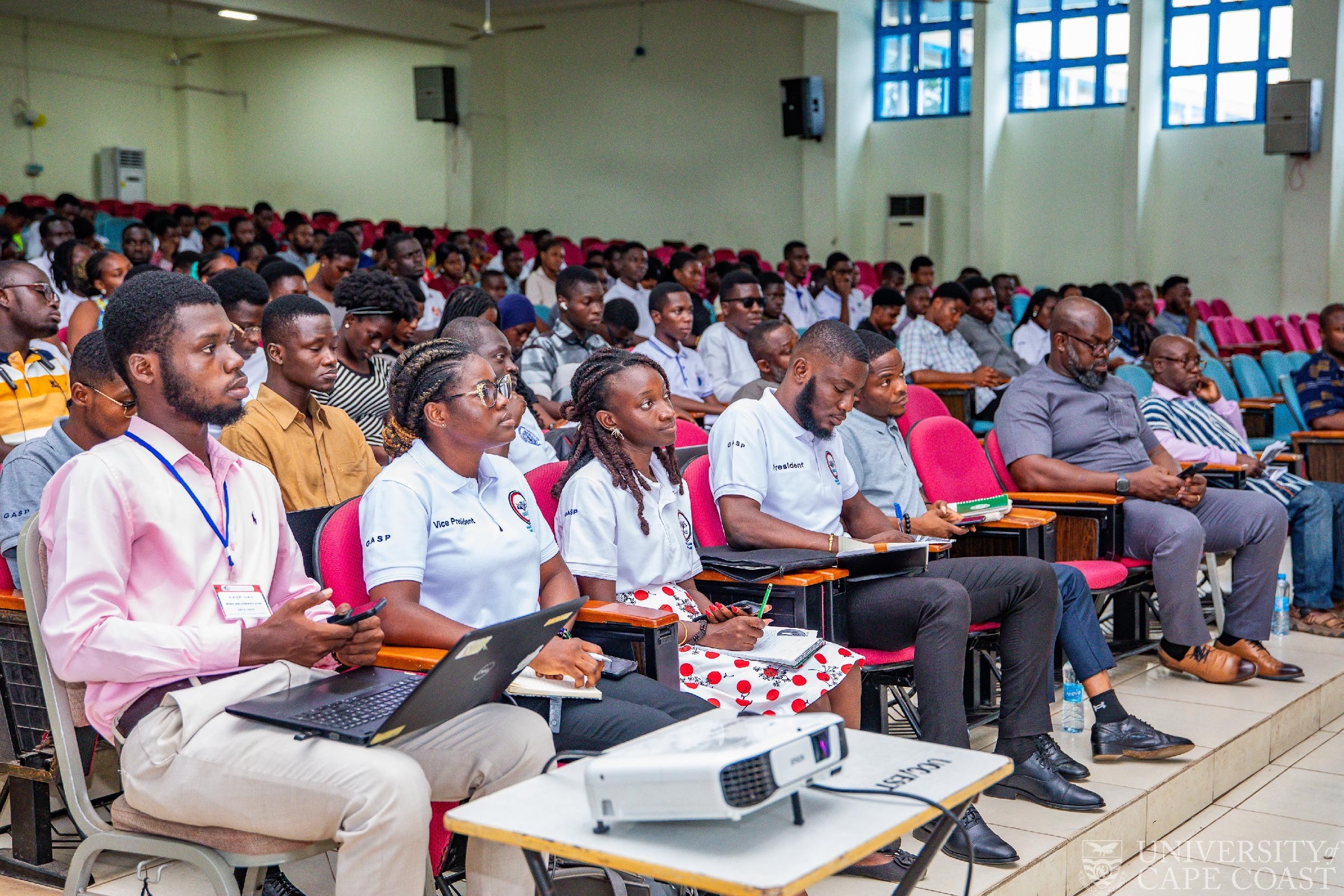The Department of Geography and Regional Planning at the University of Cape Coast (UCC), in collaboration with the Ghana Association of Student Planners (GASP), has held a lecture on “The Carbon Market and Its Operations in the Ghanaian Context”. The event formed part of efforts to deepen awareness and participation in climate change solutions among students and the academic community.
The programme brought together faculty members, students, and environmental experts to discuss Ghana’s place in the evolving global carbon market and the mechanisms needed to leverage its opportunities for sustainable development.
In his opening remarks, chairperson of the event and Head of the Department (HoD), Prof. Simon Mariwah, emphasised Ghana’s potential role in carbon trading.
“Ghana sits at an important position to take advantage of the carbon market,” he stated, encouraging attendees to make the most out of the lecture.
The guest speaker, Mr. Isaac Kwabena Danso, Assistant Programme Officer at the Environmental Protection Agency (EPA), Climate Change Unit, delivered a presentation on the challenges and opportunities the carbon market presents for developing nations like Ghana. He noted that many of the country’s developmental activities also contributed to greenhouse gas emissions.
“The things we have to do as a country to develop are the same things that emit these gases. So, there is a need to know how to manage it – for example, in agriculture, transport, and industry,” he explained.
Mr. Danso took participants through key milestones in global climate action, including the 1992 Earth Summit, the role of the United Nations Framework Convention on Climate Change (UNFCCC), and the significance of the Paris Agreement. He elaborated on Article 4 of the Agreement, which mandates countries to establish Nationally Determined Contributions (NDCs), and outlined the main emission target strategies: Absolute emission reduction targets, Emission intensity targets, peaking targets and Business-as-usual targets.
He concluded by stressing the importance of strategic planning and policy development in helping Ghana align its development path with international climate goals.
Prof. Collins Adjei Mensah from the Department noted the need to address carbon emissions, describing carbon as “dominant” among atmospheric pollutants. He added that the lecture would help participants gain critical insights into carbon operations in the country.
Source: Documentation and Information Section-UCC

